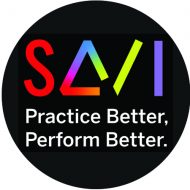I originally wrote this a little over a year ago and posted it on my personal site, but it seems particularly relevant given Audra’s recent Tony Award triumph.
 In the spring of 2013, Audra MacDonald sang at Lincoln Center’s spring gala, and Stephen Holden from the New York Times was on hand to review her performance. I’m not surprised by his praise – I’m a fan, too, after all – but I was struck how some of his observations appear to reflect my own values about singing-acting.
In the spring of 2013, Audra MacDonald sang at Lincoln Center’s spring gala, and Stephen Holden from the New York Times was on hand to review her performance. I’m not surprised by his praise – I’m a fan, too, after all – but I was struck how some of his observations appear to reflect my own values about singing-acting.
Ms. McDonald’s soprano […] seemed to unfurl in ever-richer textures as she imbued songs with a sense of bursting possibility. The familiar songs “First You Dream,” from the Kander and Ebb show “Steel Pier,” and the Styne-Comden-Green ballad “Make Someone Happy” from “Do Re Mi,” were infused with the excitement of discovery, as if Ms. McDonald and the audience were together realizing how humble Broadway songs delivered with passion and intelligence could convey basic emotional truths.
Okay, so we’ll let “humble Broadway songs” pass without complaining that it’s a condescending remark. His reference to Audra’s “sense of bursting possibility” reminds me of a comment from composer Adam Guettel I read over a decade ago: “People like Audra have an innate instinct for the opportunities in a song.” Such opportunities inhere in classic Broadway showtunes (“humble” or not), and “songs delivered with passion and intelligence [can indeed] convey basic emotional truths.” Near the end, Holden observes that:
One of Ms. McDonald’s greatest gifts is to find the story inside the song and deliver it with immediacy and clarity, in a voice that finds a flexible, intuitive balance between storytelling and singing — a defining voice of our time.
Indeed, I agree that Audra’s approach to singing-acting – which he describes with words like “immediacy,” “clarity,” “intelligence,” “passion,” and, above all, a “flexible, intuitive balance between storytelling and singing” – is definitive, the gold standard for integrated singing-acting to which I hope all my students aspire.
